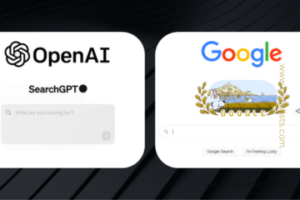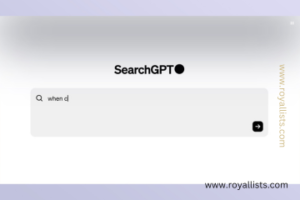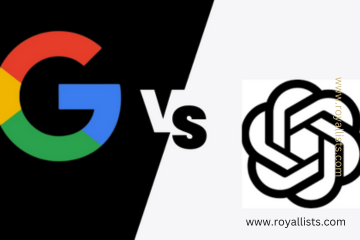The continuos intensification of rivalry between SearchGPT and Google is evoking discussions among the users and specialists. Technically, Google has been the market leader of the search engine for quite a long time, but with the introduction of OpenAI’s SearchGPT that takes a conversational AI approach. In this article we’ll discuss SearchGPT vs. Google: A Causal Analysis.
Core Technologies

Google Search is based on a complicated system called PageRank, accompanied by machine learning and scrupulous web indexing to rank web pages in accordance with the intent of the user. Since the inception of Google, a number of improvements have been made on the search engine to allow for more specific search results, individualized results as well as localized search results.
While SearchGPT is based on the use of deep learning model of the GPT architecture developed by OpenAI. In contrast to Google, SearchGPT doesn’t crawl websites to bring relevant content to the users. Rather, it delivers answers based on its knowledge of big data, performing well in natural language processing, and providing less formal qualitative answers to the users’ questions.
Key Differences
Search Experience: Direct Responses Containing Links
Google offers users a list of website links to wade through, sometimes offer users snippets, related queries and knowledge graph panels for a quicker access to information.
SearchGPT, however, gives one-on-one answers to questions, and condenses information from different sources in a plain English style.
Handling Complex Queries
That is why Google is good at exact searches, in which people are looking for specific pages and at the searches for local businesses. Because of its large database and compatibility with other forms like Google Maps, it is unbeatable when it comes to things like locating business around or giving reviews of certain products.
When it comes to intricate or otherwise unclear questions, SearchGPT stands out in terms of delivering clear and well-developed answers. It was found to be most suitable for educational or research needs since users are able to engage with the engine in dialog.
User Experience and Limitations

Google gives a basic search functionality, yet it might take the user several pages to get the results they are interested in. This can prove a lot of pressure for some.
As a search technology, SearchGPT continues the conversation by providing follow-up questions and, therefore, it enhances the search capability and user experience to a great extent. But, it has also mini-uses.
Strengths and Weaknesses
Google’s Strengths:
They provide a complete index and an updated stream of information.
Good in local search engines and those that are available online.
Enhancements such rich snippets or knowledge panels for specific web pages or the whole website, respectively.
Digital Information World.
SearchGPT’s Strengths:
Better in developing greetings, which resemble natural conversation with a human interlocutor.
Fantastic for questions which need elaborative answers.
Making the search process feel like one is having a conversation.
However it would also be pertinent to note that both the platforms have their unique disadvantages. Google may generate overcrowding of links that are unrelated to the user search queries while SearchGPT lacks in flexibility in presenting the most updated or accurate answers for real-time and geo-specific questions.
Customers’ response and future trends
The result obtained from the user feedback analysis has been ambiguous. Some people highlighted that SearchGPT is a great tool for generating summaries and providing answers in a shorter time if compared to an original search for the same information. However, some have complained about its interface arguing that even compared to small companies such as that of Perplexity there is better design and usability.
Google, on the other hand, remains strong thanks to its healthy ecosystem, however, while SearchGPT is an interactive tool, this may prompt Google to add more conversational features to its AI-related services.
Also Read: How to Add Custom GPTs to Any Website
Conclusion
SearchGPT vs. Google: A Causal Analysis, in the present generation Google is still the most preferred search engine for all the categories of search including the broad, the navigational, and the real-time searches. , in Part 3, SearchGPT serves as an interesting option for those users who want to get comprehensive and discursive answers to questions. Each of the above mentioned systems has its strengths and weakness, but it could be seen that further development of search technologies is towards the integration of techniques used in concept- based systems and keyword-based systems to provide improved search experience for users.

